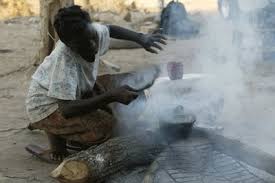By Oluwagbenga Bankole
The premature death caused by dirty fuel in Nigeria has hit
70, 000 in one year, World fore-most authority on air-pollution, and a
professor at the University of California, Berkley, Dr. Kirk Smith, declared on
Wednesday, just as the highest body of stakeholders in the Nigeria's Liquefied
Petroleum sector, the Nigeria Liquefied Petroleum Gas Association (NLPGA), said
that the federal government could save several billions of Naira spending on
dirty fuel.
The government budgeted over N45 billion to subsidise kerosene, one of the dirty fuels, in the 2015 budget alone.
Dr. Smith and President of NLPGA, Dayo Adesina, said these at the fifth annual gas conference organIsed by the NLPGA in Lagos.
While Adesina re-affirmed the association's continued willingness to support the federal government's actions to encourage LPG usage nationwide, he cautioned on spending on subsidy on products that, he said, have cheaper, cleaner and safer alternatives.
Delivering a paper entitled: "LPG and the health of the World's Poor," Dr. Smith said: "When firewood is used to produce it produces 400 cigarette per hour."
Other stakeholders at the conference also bemoaned Nigeria's per capita LPG consumption for being the lowest in sub-Saharan Africa.
They expressed dissatisfaction with under-utilisation of the product, advocating boost to the about multi-billion dollars LPG investments in the country.
"The per capita consumption of Liquefied Natural Gas (LPG) also known as cooking gas in Nigeria is the lowest in Sub-Saharan Africa," Nuhu Yakubu, NLPGA deputy President said.
His view was corroborated by LPG experts like Baylon Duru, Felix Ekundayo and Auwalu Ilu.
"Nigeria is the second largest producer of LPG in Africa and the sixth largest producer in the World. We produce over 4 million tonnes of LPG per annum and have the capacity to consume as much," Ekundayo said.
"In addition, we flare an additional 1-2 million tonnes of LPG inland.
Ironically, Nigeria also has the lowest per capita consumption of LPG in
sub-Saharan Africa at 0.8kg per annum. Consumption in 2014 was 350, 000
tonnes," Duru added.The government budgeted over N45 billion to subsidise kerosene, one of the dirty fuels, in the 2015 budget alone.
Dr. Smith and President of NLPGA, Dayo Adesina, said these at the fifth annual gas conference organIsed by the NLPGA in Lagos.
While Adesina re-affirmed the association's continued willingness to support the federal government's actions to encourage LPG usage nationwide, he cautioned on spending on subsidy on products that, he said, have cheaper, cleaner and safer alternatives.
Delivering a paper entitled: "LPG and the health of the World's Poor," Dr. Smith said: "When firewood is used to produce it produces 400 cigarette per hour."
Other stakeholders at the conference also bemoaned Nigeria's per capita LPG consumption for being the lowest in sub-Saharan Africa.
They expressed dissatisfaction with under-utilisation of the product, advocating boost to the about multi-billion dollars LPG investments in the country.
"The per capita consumption of Liquefied Natural Gas (LPG) also known as cooking gas in Nigeria is the lowest in Sub-Saharan Africa," Nuhu Yakubu, NLPGA deputy President said.
His view was corroborated by LPG experts like Baylon Duru, Felix Ekundayo and Auwalu Ilu.
"Nigeria is the second largest producer of LPG in Africa and the sixth largest producer in the World. We produce over 4 million tonnes of LPG per annum and have the capacity to consume as much," Ekundayo said.
Dr. Smith, in the same vein, maintained that dirty fuel like kerosene and firewood will kill more if nothing is done to encourage cleaner fuel like as alternative fuel for cooking, powering machines, fuelling vehicles among others.
NLPGA, he said, would continue to advocate boosts in investments for LPG beyond the present investments figure.


No comments:
Post a Comment